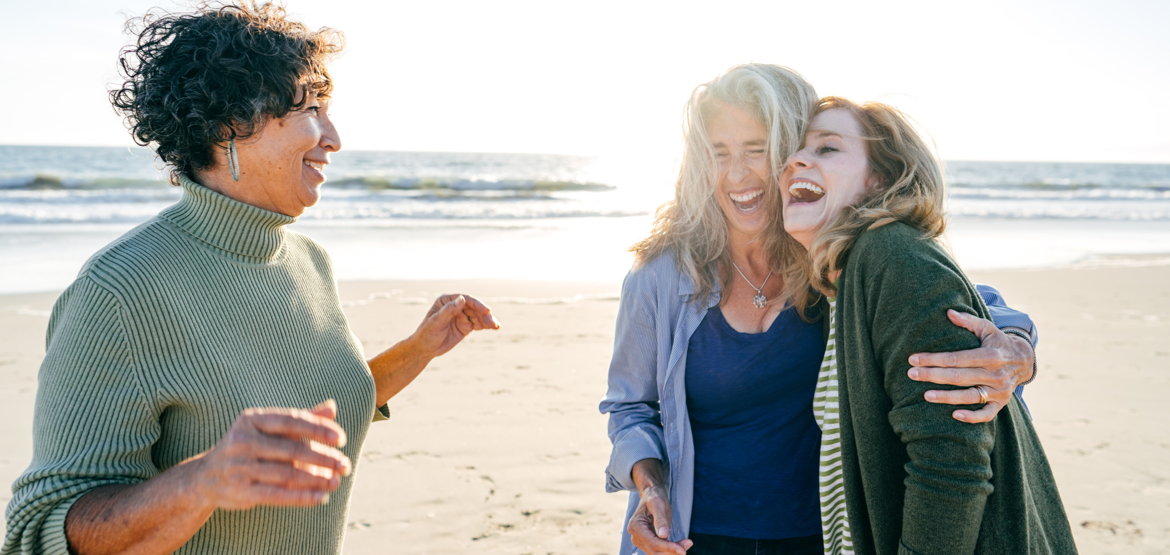How to start reducing your risk of breast cancer
Whelan Barzey, Communications Officer at Breast Cancer UK, writes about the link between breast cancer and alcohol.

In the UK around 56,300 new cases of breast cancer are diagnosed every year, that’s over 150 cases every day. While many potential causes of the disease exist, studies have shown that alcohol consumption does increase risk. Reducing your alcohol intake or cutting out drinking altogether is an effective way to lower your risk of getting breast cancer.
Reducing your alcohol intake or giving up alcohol altogether can be daunting, but it doesn’t need to be. There are small, gradual steps that you can take to build better habits to introduce new joys to your life.
Alcohol and breast cancer
The conversation around breast cancer is predominantly female-focused. But just like bad drinking habits, it’s an issue that can affect anyone - around 56,000 women and 370 men are diagnosed with breast cancer every year in the UK.
While drinking alcohol doesn’t automatically mean you’ll get breast cancer, staying away from it altogether doesn’t mean you’ll be completely immune. There is research showing a link between the two. Simply, the more alcohol you drink, the higher your chance of developing breast cancer at some point in your life. Here are some of the reasons why:
- Alcohol raises circulating oestrogen levels which increases breast cancer risk.
- In the liver and breast tissue, alcohol is broken down to acetaldehyde. This chemical compound can cause cancerous cells to develop by damaging DNA.
- Alcohol can cause weight gain, increasing the risk of breast cancer in men and in post-menopausal women.
- Alcohol may also affect the body’s immune system and how well it absorbs vitamins and nutrients.
- Alcohol can affect whether Gene expression is a tightly controlled process; any deviations could potentially increase the risk of tumour formation.
Signs of breast cancer
Breast Cancer UK advises that you should see a doctor if you have noticed:
- A change in the size, shape or feel of a breast
- A new lump or thickening in a breast or armpit
- Skin changes such as puckering, dimpling, a rash or redness of the skin
- Fluid leaking from a nipple when you aren't pregnant or breastfeeding
- Changes in the position of a nipple
- Breast pain
How do I check my breasts?
How can I reduce my alcohol intake?
- Start slowly: Take the time to understand where you are on your journey. The Drinkaware Drinking Check quiz can help you identify if the amount you drink could be putting your health at risk. Then you can download the MyDrinkaware App to help you track your drinking and set small goals like alcohol-free days.
- Practice stress management: Many people turn to alcohol to cope with stress. Look for healthier ways to manage stress, such as exercise, meditation, deep breathing techniques, or engaging in activities you enjoy. Finding healthy coping mechanisms can reduce your reliance on alcohol.
- Find your new favourite drink: When you feel the urge to drink, there are now more options for low or no alcohol alternatives.
- Talk about your journey: Consider reaching out to a trusted friend or family member about your desire to cut down on alcohol. Having someone to confide in can provide support and accountability. If you find cutting down on your own challenging, you can also seek professional help through therapy or support groups.
- Plan outdoor adventures: Take advantage of nature and plan outdoor activities. Go hiking, picnic in the park, organise a beach day, or ride a bike. Spending time in nature with those closest to you can be refreshing and enjoyable, providing a different kind of buzz without the need for alcohol.
How else can I reduce my risk of breast cancer?
Everyone is born with a degree of susceptibility to breast cancer. Women are more susceptible than men. But the choices you make in your daily life can influence your level of risk.
The good news is that you have a certain amount of control over these factors. We encourage you to get to know the ways in which you are at increased risk and try to make changes to your lifestyle and behaviour accordingly.
- Get active: The World Health Organization recommends at least 150-300 minutes of moderate or 75-150 vigorous weekly exercise
- Maintain a healthy weight: Maintaining a healthy weight is key to reducing your risk of breast cancer. In particular, for women, gaining weight as an adult increases breast cancer risk
- Eat more fruit and vegetables: Eating lots of green leafy and yellow/orange vegetables may reduce the risk of breast cancer
- Be aware of harmful chemicals: Many chemicals in everyday products and the environment may affect your risk of breast cancer.
Where do I start?
It’s never too soon or too late to reduce your risk of breast cancer. Breast Cancer UK’s prevention quiz is a great place to start. There are videos, iGuides and a handy quiz and planner to help you take the right steps now to prevent breast cancer in the future.
Get started: https://breastcancerprevention.org.uk/
Useful Resources
- Breast Cancer UK website
- Breast Cancer UK Prevention Hub
- Macmillan CancerLine: 0808 808 0000
- Drink Aware: Alcohol and Breast Cancer Facts and Figures